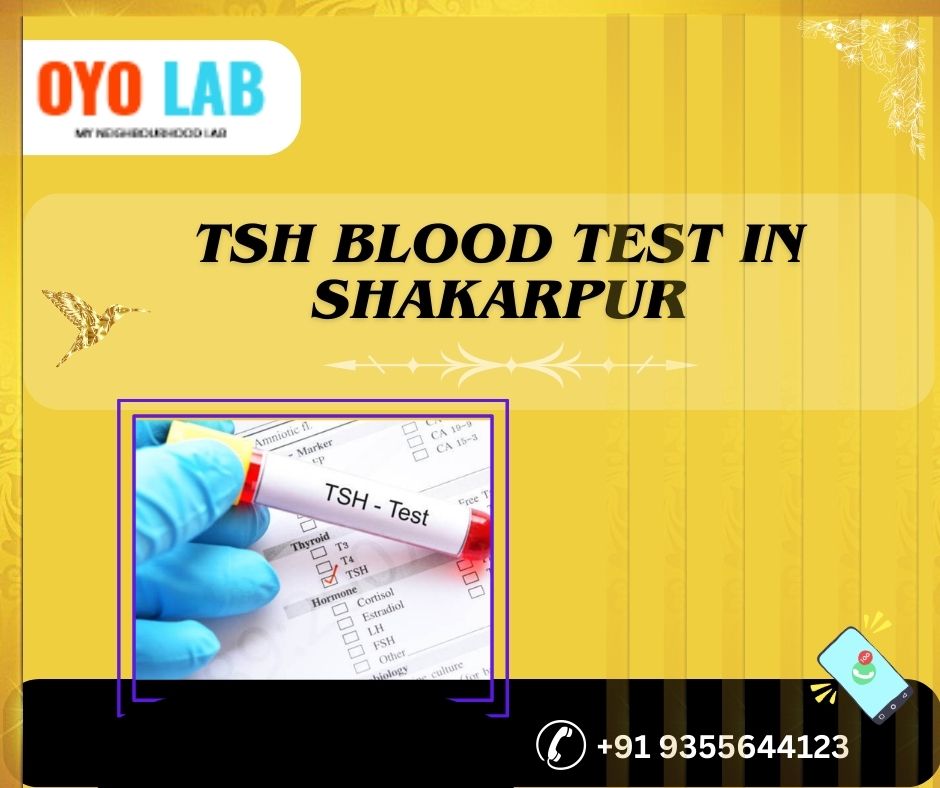
tsh blood test in shakarpur
By Shilpa | March 22, 2025
Introduction to tsh blood test
The TSH (Thyroid-Stimulating Hormone) blood test is a diagnostic test used to evaluate the functioning of the thyroid gland. The thyroid gland plays a crucial role in regulating metabolism, energy levels, and overall bodily functions. TSH is produced by the pituitary gland and signals the thyroid to produce hormones like T3 (triiodothyronine) and T4 (thyroxine), which control various essential processes in the body.
Healthcare providers often recommend a TSH test to diagnose or monitor thyroid conditions such as hypothyroidism (underactive thyroid) or hyperthyroidism (overactive thyroid). Symptoms like fatigue, weight changes, hair thinning, or mood swings may indicate a thyroid imbalance, making the TSH test crucial for identifying the root cause.
This simple blood test helps doctors assess thyroid health and determine the right treatment or medication to restore hormone balance, ensuring improved energy levels, metabolism, and overall well-being.
Importance of tsh blood test
The TSH (Thyroid-Stimulating Hormone) blood test is vital for diagnosing, monitoring, and managing thyroid-related conditions. Here’s why this test is important:
- Early Detection of Thyroid Disorders:
The TSH test helps identify thyroid problems such as hypothyroidism (underactive thyroid) or hyperthyroidism (overactive thyroid) before noticeable symptoms develop. Early diagnosis allows for timely treatment and prevents complications. - Monitoring Thyroid Treatment:
For individuals receiving treatment for thyroid disorders, the TSH test is crucial for tracking progress. It helps doctors adjust medication doses to maintain optimal hormone levels. - Identifying Causes of Symptoms:
Symptoms like fatigue, weight fluctuations, hair loss, or mood changes can be linked to thyroid imbalances. A TSH test helps confirm if these issues are thyroid-related. - Supporting Pregnancy Health:
Proper thyroid function is essential during pregnancy for the baby’s development. The TSH test is often recommended for expectant mothers to ensure hormone levels are balanced. - Detecting Pituitary Gland Issues:
Since the pituitary gland controls TSH production, abnormal TSH levels may also indicate potential problems with this gland. - Preventing Long-Term Health Risks:
Untreated thyroid imbalances can lead to serious complications such as heart problems, infertility, or metabolic issues. The TSH test helps prevent such risks by ensuring timely diagnosis and care.
By offering insights into thyroid function, the TSH blood test plays a crucial role in maintaining hormonal balance, improving energy levels, and supporting overall well-being.